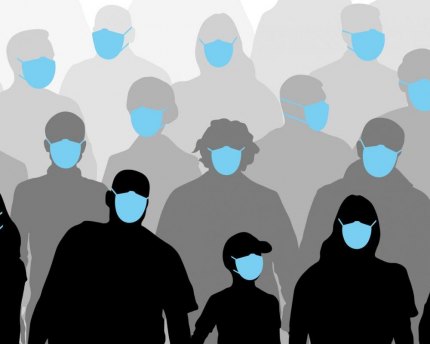Researchers study impact of masks

Here are two examples:
GARBLED MESSAGES: On a basic level, masks garble speech. But a study by researchers at the University of Illinois at Urbana-Champaign found that disposable surgical masks are best for being heard clearly when speaking.
"The team tested medical masks, disposable surgical masks, masks with clear plastic windows around the mouth, and homemade and store-bought cloth masks made of different fabric types and numbers of layers," the university reported. The researchers put various masks on a loudspeaker custom-built by a university graduate and shaped like a human head.
All masks "muffle the quiet, high-frequency sound generated when a person pronounces consonants," according to the university. "The study found that disposable surgical masks offer the best acoustic performance among all tested."
While loosely woven cotton masks also perform well, they are not as good at blocking respiratory droplets.
For more on the study, see the university's website: Disposable surgical masks best for being heard clearly when speaking, study finds, by by Lois Yoksoulian, Dec. 23, 2020.
MASKING EMOTIONS: The masks that we wear during the pandemic help keep everyone healthy, but they also hide our facial expressions. Even so, masks don't always camouflage emotions, according to a recent study.
University of Wisconsin, Madison, researchers tested how children ages 7 to 13 reacted to photos of faces "displaying sadness, anger or fear that were unobstructed, covered by a surgical mask, or wearing sunglasses," according to the university. The 80 participants were given six labels and asked to assign an emotion to each face. When faces were uncovered, the kids were correct 66 percent of the time. "With a mask in the way, they correctly identified sadness about 28 percent of the time, anger 27 percent of the time, and fear 18 percent of the time," the university found.

